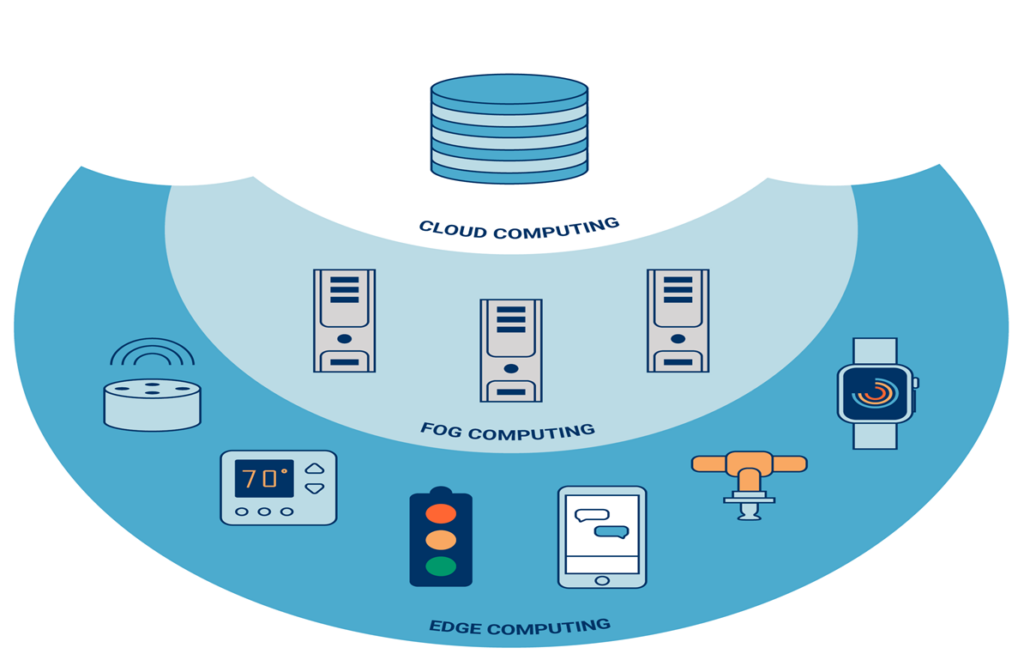Introduction
In the digital age, IT Infrastructure is the backbone of every organization, driving seamless operations, efficient data management and innovation. As technology advances rapidly, traditional Infrastructures often fall short in meeting modern demands. Future-proofing IT systems with solutions like Azure Infrastructure, edge computing, AI-driven cloud management and composable Infrastructure is essential to stay agile, competitive and secure in a constantly evolving landscape.
Traditional IT vs Azure Cloud Infrastructure
Traditional IT Infrastructure faces several challenges, including high maintenance costs, limited scalability, lack of flexibility and significant security risks. Maintaining on-premises hardware requires substantial investment in resources and personnel, while scaling to meet fluctuating demands often results in inefficiencies like underutilization or overprovisioning. Additionally, these systems struggle to adapt to emerging technologies and evolving business needs, making them less agile. Security vulnerabilities, including physical damage and exposure to cyberattacks, further underscore the need for modernization.
Azure offers a comprehensive, cloud-based IT Infrastructure that overcomes the limitations of traditional systems. Its wide range of services including computing, storage, networking and analytics provides scalability, flexibility, cost-efficiency and advanced security. Organizations can effortlessly scale resources up or down based on demand, leveraging a pay-as-you-go model that reduces costs and enhances efficiency. Additionally, Azure supports emerging technologies like AI, machine learning and IoT, enabling businesses to innovate and remain competitive with a future-proof Infrastructure.
Future Innovations in Azure IT Infrastructure
Azure continues to evolve, offering advanced tools and innovative solutions to support organizations in building scalable, flexible and secure IT environments. These advancements enable businesses to innovate and grow while preparing for future challenges. Key areas of future support from Azure include:
- Edge, Fog and Quantum Computing
- AI-Driven Cloud Management
- Composable Infrastructure
Edge, Fog and Quantum Computing

Edge Computing
Edge computing is a distributed computing model that brings computation and data storage closer to the sources of data, such as IoT devices. This reduces latency and allows for quicker response times by processing data locally rather than sending it to a centralized data centre.
Comprehensive Services Offered by Azure:
- Azure Stack Edge: Hardware that runs AI and processes data locally.
- Azure IoT Edge: Deploys cloud intelligence on IoT devices for local processing.
- Azure Arc: Manages resources across on-premises, multi-cloud and edge environments.
- Azure Edge Zones: Extends Azure services to metro areas for low-latency access.
Fog Computing
Fog computing extends cloud capabilities by providing computational resources, storage and networking closer to the devices and sensors, typically between the cloud and edge devices. It is ideal for managing large volumes of data across a distributed network, enabling real-time analytics and enhanced scalability.
Comprehensive Services Offered by Azure
- Azure IoT Hub: Facilitates communication between IoT devices and the cloud, enabling seamless integration in a fog environment.
- Azure Digital Twins: Creates digital models of physical environments to optimize operations using localized fog networks.
- Azure Time Series Insights: Provides insights and analytics on time-series data collected from distributed nodes in fog networks.
Quantum Computing
Quantum computing leverages the principles of quantum mechanics to process information in fundamentally new ways, enabling exponential speedups for certain types of problems. It is particularly suited for complex computations like optimization, cryptography and molecular modeling, which are beyond the capabilities of classical computing.
Comprehensive Services Offered by Azure
- Azure Quantum: A comprehensive platform that provides access to quantum hardware from leading providers and quantum-inspired optimization tools.
- Quantum Development Kit (QDK): A set of tools, libraries and a programming language (Q#) for building quantum applications.
- Azure Quantum Workspace: A collaborative environment to design, simulate and optimize quantum solutions.
- Quantum Hardware Integration: Offers access to quantum computers like IonQ, Quantinuum and Rigetti for solving real-world quantum problems.
AI Driven Cloud Management
AI-driven cloud management leverages artificial intelligence to optimize cloud resources, automate routine tasks, and enhance decision-making. This approach ensures efficient utilization of infrastructure, cost optimization, and improved performance by using predictive analytics and real-time insights.
Comprehensive Services Offered by Azure
- Azure Machine Learning: Provides advanced AI models to automate workflows and optimize cloud resources.
- Azure Monitor: Uses AI-driven insights for proactive monitoring and performance optimization.
- Azure Cognitive Services: Enhances cloud management with AI-powered tools for natural language processing, vision and decision-making.
- Azure Advisor: Offers AI-based recommendations for cost, performance and reliability optimization in cloud environments.
Composable Infrastructure
Composable infrastructure is a modern IT architecture that disaggregates compute, storage and networking resources into flexible, software-defined pools. These resources can be dynamically allocated and configured based on workload requirements, improving scalability, efficiency and agility while reducing underutilization and costs.
Comprehensive Services Offered by Azure
- Azure Resource Manager: Provides a unified management layer to deploy, manage and organize resources programmatically or via templates.
- Azure Kubernetes Service (AKS): Offers composable containerized environments for scalable and flexible application deployments.
- Azure Virtual Machine Scale Sets: Dynamically scales compute resources to meet application demands in real-time.
- Azure Automation: Enables orchestration and management of composable infrastructure for streamlined operations.
- Azure DevOps: Facilitates CI/CD pipelines and infrastructure-as-code practices for efficient resource composition.
Final Thoughts
Adopting modern IT Infrastructure solutions like Azure is crucial for staying competitive and future ready. Azure offers scalability, flexibility and the ability to support emerging technologies, making it the ideal choice for organizations looking to enhance their IT capabilities. By leveraging Azure’s advanced features, businesses can improve efficiency, reduce costs and drive innovation. In today’s fast-paced business environment, modernizing IT Infrastructure with Azure is a strategic investment that ensures your organization remains agile, scalable and prepared for the future.

